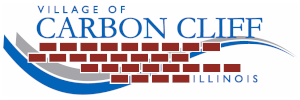Stormwater Management
It is essential to note that the Stormwater Ordinance prohibits any release into the storm sewer system that does not consist entirely of uncontaminated stormwater or groundwater. There are exceptions to the prohibited discharges, but it is best to check with the Villages Stormwater Manager before releasing anything into the storm sewer. Violating the Ordinance, even unknowingly, can result in fines and legal action.
The Village Stormwater Ordinance also protects property owners from changes in drainage that can cause flooding, backups, and other problems. Downspouts and sump pumps should be directed so that runoff is absorbed on-site and not forced onto other properties. Structures such as raised flower beds, retaining walls, and storage sheds may cause water to pond or redirect the flow to other properties. Contact the Village if you are building a similar project to check if a drainage easement borders your property.
Surface water pollution is a primary concern for the US and Illinois EPA programs. Stormwater in the Village of Carbon Cliff does NOT go to the wastewater treatment plants. It is discharged directly into the Rock River, from which drinking water is later drawn. It is essential to keep trash, lawn or pet waste, and hazardous materials, such as cleaners, oils, and paint, out of the storm sewer system.
In accordance with the NPDES Phase II regulations, Municipal Separate Storm Sewer Systems (MS4s) that serve a population of less than 100,000 and are located in an Urbanized Area are required to comply with the program's requirements. The Village of Carbon Cliff was listed in the appendix of the Federal Register as being a governmental entity located wholly or partially within an urbanized area.
NOTE: To report any suspicious activity related to Stormwater Management. Please call (309) 792-8235, or email: n.gottwalt@carboncliff.com
Requirements
The Environmental Protection Agency (EPA) requires, under the Phase II regulations, that all owners/operators of small Municipal Separate Storm Sewer Systems (MS4s) reduce the discharge of pollutants from a regulated system to the maximum extent practicable to protect water quality. At a minimum, jurisdictions regulated under Phase II must:
- Specify best management practices (BMPs) for six minimum control measures and implement them to the maximum extent practicable.
- Identify measurable goals for control measures.
- Show an implementation schedule of activities or the frequency of activities.
- Define the entity responsible for implementation.
The six minimum control measures that must be addressed under the Phase II NPDES Program include:
- Public Education and Outreach on Storm Water Impacts
- Public Involvement and Participation
- Illicit Discharge Detection and Elimination
- Construction Site Storm Water Runoff Control
- Post Construction Storm Water Management in New Development and Redevelopment
- Pollution Prevention/Good Housekeeping for Municipal Operations
Permit coverage under this program is granted by submittal of a Notice of Intent (NOI) form to the permitting authority. The Illinois Environmental Protection Agency (IEPA) is the permitting authority for the State of Illinois. A copy of the IEPA NOI form and General Permit are included below.
To report any suspicious activity, please call (309) 792-8235.
Contact Info
Nick Gottwalt
Village Director
1001 Mansur Avenue
Carbon Cliff, IL 61239
(309) 796-6045
n.gottwalt@carboncliff.com

